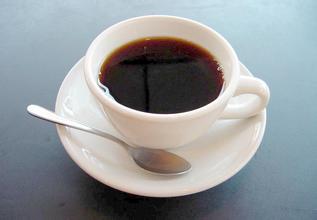What is organic coffee? what's the difference between organic coffee and ordinary coffee?
Organic ∶ has life. Relating to or derived from an organism. It now refers to those containing carbon atoms, except carbon monoxide, carbon dioxide, carbonic acid, carbonates and certain carbon compounds.
Its compound refers to the compound composed of carbon element and hydrogen, oxygen, nitrogen or sulfur. It's called organic matter for short.
The decomposed substances such as the remains and feces of plants and animals are transformed into humus by microorganisms and contain all kinds of nutrients needed for plant growth. It's called organic matter.
Organic vegetable ∶ is a vegetable grown completely without pesticides or chemical fertilizers. It is cultivated by natural prevention and control of diseases and insect pests and organic fertilizer, so there is no pesticide residue.
Organic fertilizer ∶ animal excreta, decomposition of animal and plant carcasses, or organic waste from food processing plants can be used for breeding and fertilization.
The term "organic" covers the production management system of crops and the product itself.
The production management of organic crops refers to the technology and specification of its production surface, which is called "Organic farming method (Organic Farming)".
The products managed and cultivated according to this standard can be called "organic products (Organic Products)".
For example, ∶ organic fruits, organic rice, organic vegetables, … , etc. And the "organic processed food" produced after the processing process.
Such as ∶ organic soybean milk, organic fruit juices, organic tea, organic coffee, … , etc.
The relevant definitions of organic agriculture in various countries are detailed as follows: ∶
1. Dr Rudolf Steiner, a German scholar of ∶ in Europe, advocated organic agriculture in 1924. In addition to setting up nine associations of organic agriculture among the people, he set up its own standards and labels to promote organic agriculture.
two。 ∶ Organic Agriculture in the United States was first regulated in the 1940s as follows: ∶
(1) the United States Department of Agriculture and the Federal Drug and Food Administration conduct regular spot checks.
(2) soil and Fertilizer ∶ it is stipulated that chemically synthesized fertilizers and agriculture should never be used on crops.
(3) pest control ∶ approves the use of natural pesticides or biological control of insects.
(4) for edible animals, ∶ should not be injected with drugs such as hormones, artificial growth promoters, and antibiotics to increase production.
3. Mr. Worthinton, a British agronomist at ∶, defined eco-agriculture ∶ in 1981 as "small-scale agriculture that is ecologically self-sustaining and economically viable, and ethically acceptable." In other words, reducing the application of chemical compounds to reduce its impact on natural ecology, and Japanese scholars also believe that ecological agriculture is the general name of organic agriculture, natural agriculture and light pesticide agriculture.
4. Mr. Yoshimo Okada, ∶ of Japan, proposed the natural farming method in 1935. He advocated not using chemical synthetic substances, chemical fertilizers, pesticides, and other chemical substances, but using natural organic matter to cultivate soil. He believed that only healthy soil could produce healthy crops. At the same time, the principle of balance was used to control diseases and insect pests. In 1953, it extended its concept to the whole country, and 27 other countries, including Taiwan. 1992 the guidelines for the labelling of Organic Agricultural products and specially cultivated Agricultural products shall be formulated in the Department of Agriculture and Forestry of Japan.
5. The key points for the verification and guidance of ∶ organic agricultural products in Taiwan are defined as follows: ∶ "refers to the agricultural products produced by the organic agricultural products benchmark established by the Association in full compliance with the soil and water sources of the same agricultural land that are not contaminated. According to the all-organic cultivation mode, the producer is called the all-organic product; according to the quasi-organic cultivation mode, the producer is called the quasi-organic agricultural product.

Important Notice :
前街咖啡 FrontStreet Coffee has moved to new addredd:
FrontStreet Coffee Address: 315,Donghua East Road,GuangZhou
Tel:020 38364473
- Prev

What are the disadvantages and benefits of drinking coffee to women?
Caffeine is often combined with other simple painkillers because of its analgesic effect, but if you take it in large quantities for a long time, if you already have high blood pressure, using a lot of caffeine will only make your situation worse. Because caffeine alone can raise blood pressure, if coupled with emotional tension, it will have a dangerous multiplication effect, therefore, people at risk of high blood pressure
- Next

Brazilian Syracuse Serrado cerrade Coffee beans
Syrador (Syracuse, Serrado) Coffee was born as early as 30 years ago now, unknown name, as a desolate mountain, Brazil quietly Serrado. In Portugal it means savagely. Serrado is now a famous coffee producer. Serrado's soil and climate characteristics are inherent, combining the Japanese concept of modern agriculture with Serrado's agricultural technology.
Related
- Does Rose Summer choose Blue, Green or Red? Detailed explanation of Rose Summer Coffee plots and Classification in Panamanian Jade Manor
- What is the difference between the origin, producing area, processing plant, cooperative and manor of coffee beans?
- How fine does the espresso powder fit? how to grind the espresso?
- Sca coffee roasting degree color card coffee roasting degree 8 roasting color values what do you mean?
- The practice of lattes: how to make lattes at home
- Introduction to Indonesian Fine Coffee beans-- Java Coffee producing area of Indonesian Arabica Coffee
- How much will the flavor of light and medium roasted rose summer be expressed? What baking level is rose summer suitable for?
- Introduction to the characteristics of washing, sun-drying or wet-planing coffee commonly used in Mantenin, Indonesia
- Price characteristics of Arabica Coffee Bean Starbucks introduction to Manning Coffee Bean Taste producing area Variety Manor
- What is the authentic Yega flavor? What are the flavor characteristics of the really excellent Yejasuffi coffee beans?

